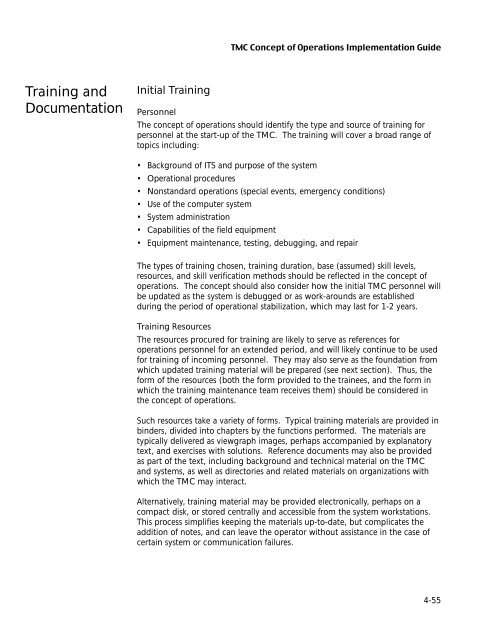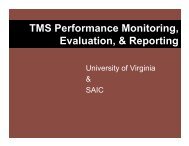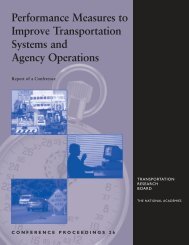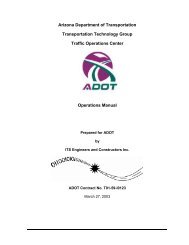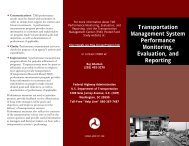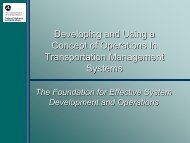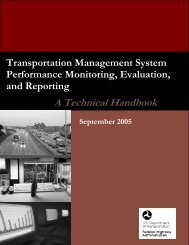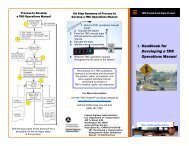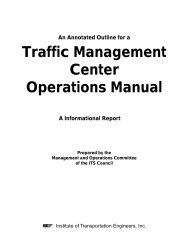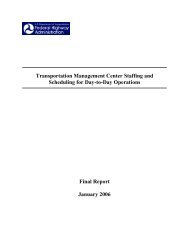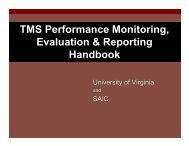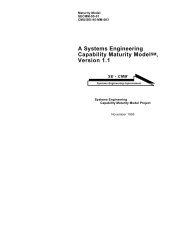Transportation Management Center Concepts of Operations
Transportation Management Center Concepts of Operations
Transportation Management Center Concepts of Operations
- No tags were found...
Create successful ePaper yourself
Turn your PDF publications into a flip-book with our unique Google optimized e-Paper software.
Training andDocumentationInitial TrainingPersonnelThe concept <strong>of</strong> operations should identify the type and source <strong>of</strong> training forpersonnel at the start-up <strong>of</strong> the TMC. The training will cover a broad range <strong>of</strong>topics including:• Background <strong>of</strong> ITS and purpose <strong>of</strong> the system• Operational procedures• Nonstandard operations (special events, emergency conditions)• Use <strong>of</strong> the computer system• System administration• Capabilities <strong>of</strong> the field equipment• Equipment maintenance, testing, debugging, and repairThe types <strong>of</strong> training chosen, training duration, base (assumed) skill levels,resources, and skill verification methods should be reflected in the concept <strong>of</strong>operations. The concept should also consider how the initial TMC personnel willbe updated as the system is debugged or as work-arounds are establishedduring the period <strong>of</strong> operational stabilization, which may last for 1-2 years.Training ResourcesThe resources procured for training are likely to serve as references foroperations personnel for an extended period, and will likely continue to be usedfor training <strong>of</strong> incoming personnel. They may also serve as the foundation fromwhich updated training material will be prepared (see next section). Thus, theform <strong>of</strong> the resources (both the form provided to the trainees, and the form inwhich the training maintenance team receives them) should be considered inthe concept <strong>of</strong> operations.Such resources take a variety <strong>of</strong> forms. Typical training materials are provided inbinders, divided into chapters by the functions performed. The materials aretypically delivered as viewgraph images, perhaps accompanied by explanatorytext, and exercises with solutions. Reference documents may also be providedas part <strong>of</strong> the text, including background and technical material on the TMCand systems, as well as directories and related materials on organizations withwhich the TMC may interact.Alternatively, training material may be provided electronically, perhaps on acompact disk, or stored centrally and accessible from the system workstations.This process simplifies keeping the materials up-to-date, but complicates theaddition <strong>of</strong> notes, and can leave the operator without assistance in the case <strong>of</strong>certain system or communication failures.4-55


